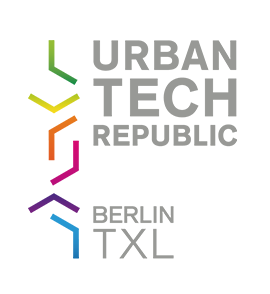Data Governance
Embedding openness and transparency, making technology and data visible
The amount of data being generated and processed in the urban context, in companies, organizations or cities, is constantly growing. Data has vital importance for smart urban districts. It is a significant factor in innovation and production, as well as a key element of information management in a digital society. Data helps in the implementation of forward-looking solutions such as climate-neutral energy supply or environmentally friendly mobility in the district, and it is a prerequisite for data-driven innovations (e.g. AI and machine learning, automation) and new business models.
Smart, structured handling of data is the crucial requirement for avoiding data silos within and between organizations, optimizing processes and creating an innovative data ecosystem. Moreover, clear access regulations ensure data security.
Strategies
Data strategy
Berlin TXL’s data strategy defines strategic goals, responsibilities, processes and roles in data handling – both at a regulatory level (data governance) and an execution (data management) and system level. Its overarching objectives include systematically promoting data-driven innovation, building trust in digital processes, and creating value through data monetization. It is a milestone on the way to developing Berlin TXL into an intelligent, comfortable urban district, conserving resources and making urban living and management more sustainable.
Open Data Strategy
With our Open Data Strategy (ODS), Tegel Projekt GmbH is creating a strategic framework for the systematic provision of open data, in line with Berlin TXL’s Data Strategy.
The aim of this Data Strategy is to make Tegel Projekt GmbH ready for open data. Combined with this is a declaration of intent to provide data in the Berlin Open Data portal, in order to promote the use of data both at Tegel Projekt GmbH and in cooperation with service providers and the public. In this way, Tegel Projekt GmbH supports the innovative, responsible use of data focused on the common good.
Shared Data Strategy
The Shared Data Strategy is primarily focused on data shared with third parties, i.e. with partners and other institutions. It is currently under development and will be completed in 2025.
Committee work
Along with digital infrastructure and spaces for innovation, intelligent digitalization of cities relies on exchange and intensive discussion with experts from the public sector, industry and research.
For this reason, actors from various sectors of urban development in Berlin TXL are prepared to participate in committee work on specific tasks and topics for a limited time. Through working on committees, actors are able to contribute their own expertise, exchange experiences with other experts, and gain technical feedback as well as an overview of new developments. In addition, we help to develop shared standards.
Selected results from committee work feed into publications, such as discussion papers, specifications or other documents.
Contributing to DIN SPECs
DIN SPEC 91397 – Guideline for digital neighborhood management
- • Contents/area of application: “This document sets out requirements for digital systems in neighborhood management and provides guidelines for their implementation. The document incorporates the interaction of different actors in urban neighborhoods and the interfaces required for this. It addresses tendering authorities/executors, users and providers of urban neighborhood projects and provides them with guidelines for timely implementation of a neighborhood management system. It focuses not on sector technologies and services already defined in standards, but on how they should interact with each other.”
- Contributors: Maria Berndt & Dr. Stefan Höffken
DIN SPEC 91607 – Digital twins for cities and communities
- Contents: “That’s why this initiative, partially funded by the CUT project, wants to transfer the concept of the digital twin to urban spaces. It should enable, for example, use cases to be described, data access and visualization methods displayed, and relevant norms and standard used.”
- Contributors: Maria Berndt & Dr. Stefan Höffken
- Still in progress
Smart Cities Standards Forum (SCSF)
- Contents: “Handling continually growing volumes of data – driven by increasing digitalization of all areas of life – is a topical issue of great importance for communities and citizens. It is about understanding how data rooms need to be organized by different topics (e.g. mobility, energy, etc.), what types of data there are and what data management can look like. In other words, where is the potential for added value in the use of data – especially with regard to sustainability – and how do we make it possible to exploit this?
- Contributors: Dr. Stefan Höffken
API management
Application programming interfaces (APIs) play a vital role in software development as well as in data integration and usage. In the FUTR HUB we make data and specifications available using the API management tool.
GitLab
The open-source code and information on our platform infrastructure can be found in a GitLab repository, as all our developments are open source and can be used by all.
